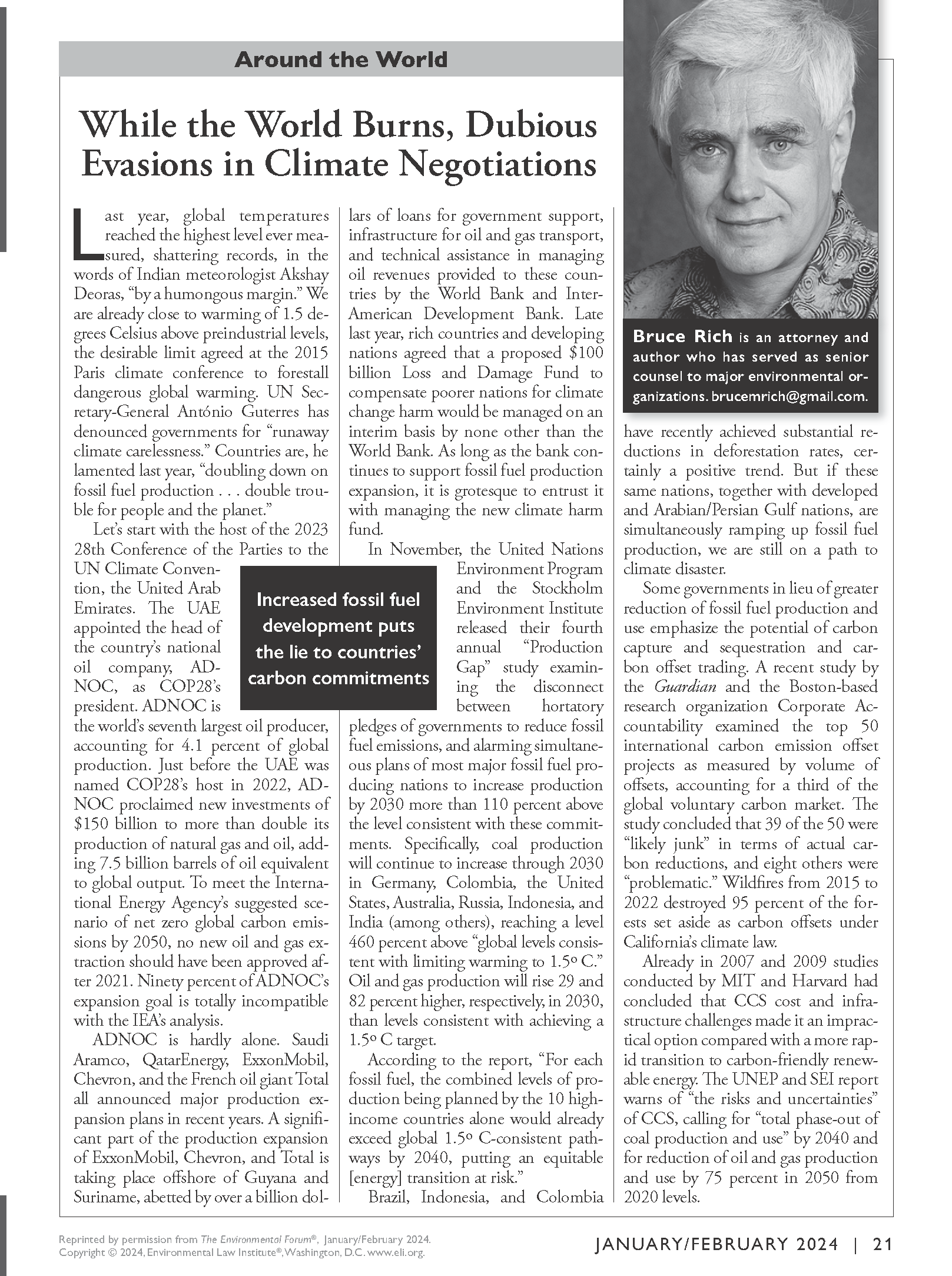- Bruce Rich
- Environmental Forum
- January/February 2024
- 21
We are close to warming of 1.5 degrees Celsius above preindustrial levels, the desirable limit agreed at the 2015 Paris climate conference to forestall dangerous global warming. UN Secretary General António Guterres has denounced governments for “runaway climate carelessness.” Countries are, he lamented last year, “doubling down on fossil fuel production…double trouble for people and the planet.” The host of the 2023 28th Conference of the Parties to the United Nations Climate Convention, the United Arab Emirates, appointed the head of the national oil company, ADNOC, as COP28’s president. ADNOC is the world’s seventh largest oil producer, accounting for 4.1 percent of global production. ADNOC proclaimed new investments of $150 billion to more than double its production of natural gas and oil. Saudi Aramco, QatarEnergy, Exxon Mobil, Chevron, and the French oil giant Total all announced major production expansion plans in recent years. A significant part of the production expansion of Exxon, Chevron, and Total is taking place offshore of Guyana and Suriname, abetted by over a billion dollars of loans for government support, infrastructure for oil and gas transport, and technical assistance in managing oil revenues provided to these countries by the World Bank and Inter-American Development Bank.
In November, 2023 the United Nations Environment Program and the Stockholm Environment Institute released their fourth annual “Production Gap” study examining the disconnect between hortatory pledges of governments to reduce fossil fuel emissions, and alarming simultaneous plans of most major fossil fuel producing nations to increase production of fossil fuels by 2030 more than 110 precent above the level consistent with these commitments. coal production will continue to increase through 2030 in Germany, Colombia, the U.S., Australia, Russia, Indonesia, and India (among others), reaching a level 460 percent above “global levels consistent with limiting warming to 1.5ºC.” Oil and gas production will rise 29 and 82 percent higher, respectively, in 2030, than levels consistent with achieving a 1.5ºC target. “For each fossil fuel, the combined levels of production being planned by the 10 high-income countries alone would already exceed global 1.5ºC-consistent pathways by 2040, putting an equitable [energy] transition at risk.”



